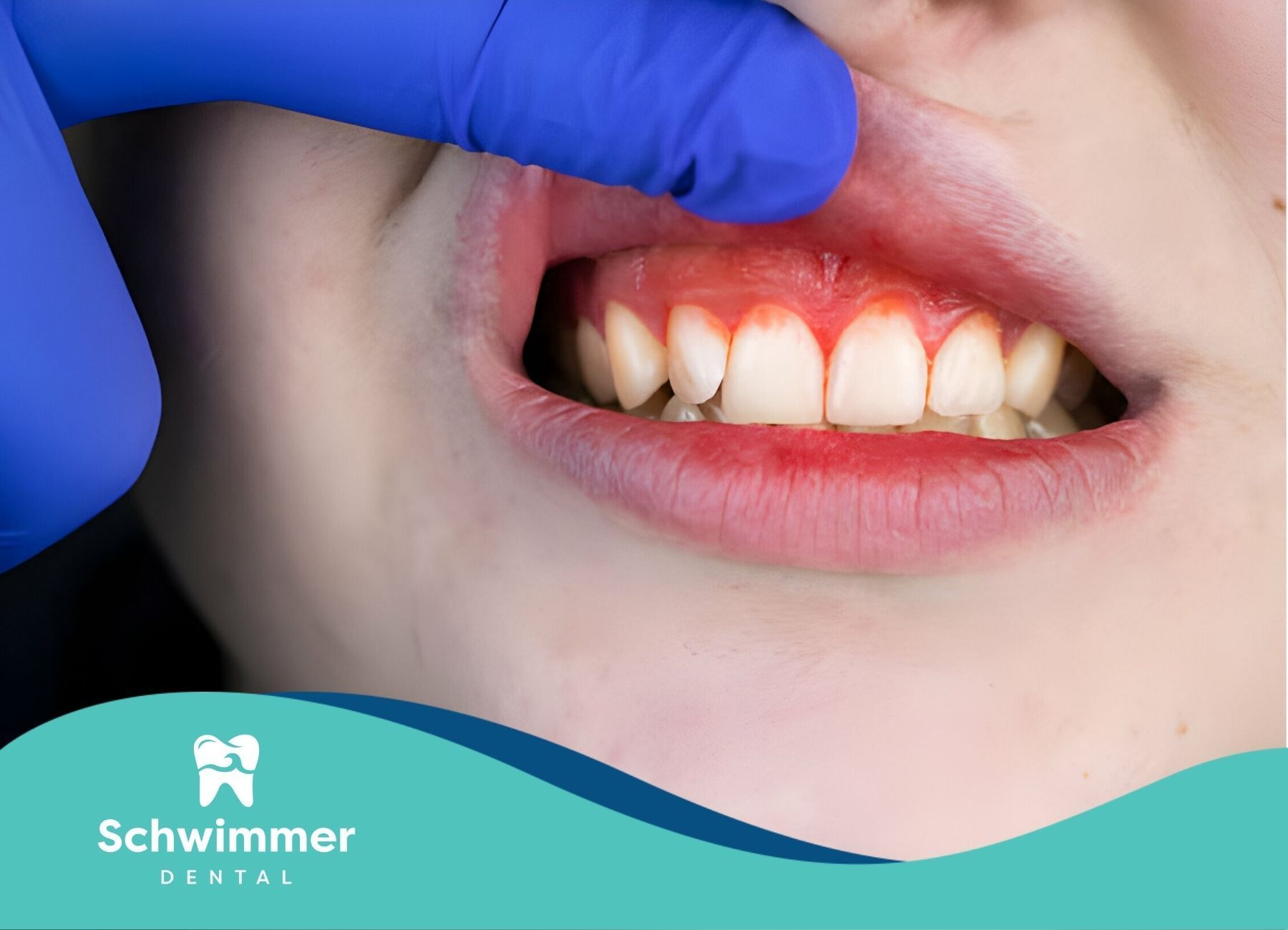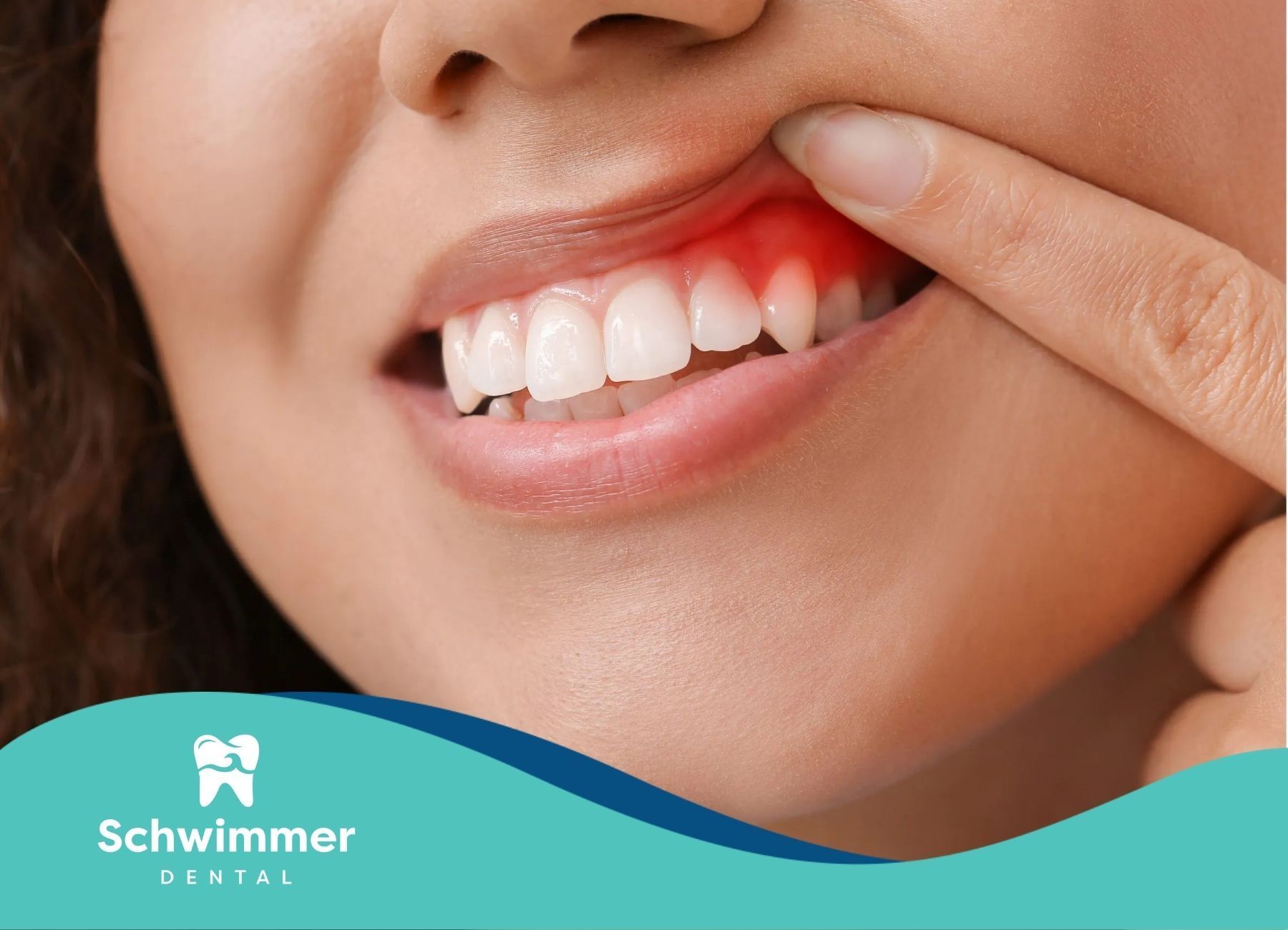Have an appointment? Complete the Intake Form
Struggling with Sensitive Teeth? Try These Effective Treatments
Tooth sensitivity is a common problem that affects many people at some point in their lives. It is characterized by discomfort or pain when consuming hot, cold, sweet, or acidic foods and beverages. This discomfort can range from mild to severe, and in some cases, it can significantly impact daily activities like eating, drinking, and even talking. Fortunately, sensitive teeth can be managed effectively with the right treatments and preventive measures.
Tooth sensitivity is often a sign of underlying dental issues, such as enamel erosion, gum recession, or cavities. Understanding the causes and available dental treatments is the first step toward finding relief. In this comprehensive article, we’ll explore the causes of sensitive teeth, common symptoms, and the most effective treatments to manage tooth sensitivity and restore comfort to your smile.
What Causes Tooth Sensitivity?
Tooth sensitivity occurs when the underlying dentin layer of the tooth becomes exposed, allowing stimuli like temperature changes or acidic foods to reach the nerve endings inside the tooth. There are several factors that contribute to the development of sensitive teeth:
1. Enamel Erosion
Enamel is the hard, protective outer layer of your teeth. Over time, it can wear away due to factors like acidic foods, aggressive brushing, or grinding your teeth. Once the enamel is worn down, the sensitive dentin underneath becomes exposed, leading to sensitivity.
2. Gum Recession
When the gums pull back from the teeth, the tooth roots become exposed. This can occur due to gum disease, aggressive brushing, or aging. The roots of your teeth are more vulnerable to sensitivity because they don’t have the protective enamel layer.
3. Cavities
Cavities or tooth decay occur when bacteria in the mouth break down sugars and starches, forming acids that erode tooth enamel. As cavities develop, they expose the inner layers of the tooth, leading to increased sensitivity.
4. Cracked or Fractured Teeth
A crack or fracture in a tooth can expose the nerve endings inside the tooth, causing pain and sensitivity. This type of sensitivity may worsen when you chew or eat certain foods.
5. Bruxism (Teeth Grinding)
Grinding your teeth, especially during sleep, can cause enamel wear and lead to tooth sensitivity. This condition is often linked to stress and can be difficult to control without professional intervention.
6. Recent Dental Procedures
Dental treatments like fillings, cleanings, or tooth whitening can temporarily increase sensitivity. These procedures may irritate the nerves within the teeth, leading to short-term discomfort. However, this type of sensitivity generally subsides after a few days.
7. Acidic Foods and Beverages
Consuming large amounts of acidic foods, such as citrus fruits, soda, and wine, can contribute to enamel erosion, increasing the likelihood of sensitivity. These foods soften enamel, making it more prone to wear and tear.
8. Aging
As people age, enamel naturally wears down, and gums can recede. This increases the exposure of dentin, leading to increased tooth sensitivity, especially in people over the age of 50.
How to Treat Sensitive Teeth
To manage and treat sensitive teeth, it’s important to address both the cause of the sensitivity and the discomfort it causes. Several treatments are available, ranging from at-home solutions to professional dental procedures.
1. Desensitizing Toothpaste
One of the first recommendations for sensitive teeth is desensitizing toothpaste. These toothpastes contain compounds that help block the transmission of sensation from the tooth surface to the nerve.
Over time, using desensitizing toothpaste can reduce sensitivity, especially when combined with good oral hygiene habits. It's important to use this toothpaste regularly for several weeks to experience the full benefits.
2. Fluoride Treatment
Fluoride strengthens tooth enamel and can reduce sensitivity by blocking the tubules in the dentin that transmit pain signals. A dentist can apply fluoride varnishes or prescribe fluoride gels that can help reduce sensitivity. Fluoride treatments are often recommended for patients with receding gums or enamel erosion.
3. Dental Sealants
For people with exposed tooth roots due to gum recession, dental sealants can be applied to protect the sensitive areas of the teeth. Sealants are a type of resin that covers exposed dentin and provides a barrier between the tooth and external stimuli.
4. Gum Grafting
If gum recession is the cause of your tooth sensitivity, a gum grafting procedure can be an effective solution. This surgery involves taking tissue from another part of your mouth and grafting it onto the affected area to cover exposed tooth roots. This can provide long-term relief from sensitivity and improve the appearance of your gums.
5. Root Canal Treatment
If sensitivity is caused by an infection or severe decay inside the tooth, a root canal may be necessary. This procedure involves removing the infected pulp from the tooth, cleaning the area, and sealing it. Root canal treatment can alleviate pain and prevent the spread of infection, providing permanent relief for patients with severe sensitivity.
6. Night Guards for Bruxism
For patients who grind their teeth, wearing a custom-fitted night guard can protect the teeth from further damage and reduce sensitivity. A night guard is a comfortable device worn over the teeth while sleeping to prevent grinding and clenching, which can worsen enamel wear.
7. Avoiding Acidic Foods and Beverages
Limiting consumption of acidic foods, such as citrus fruits, soda, and wine, can help protect your enamel from further erosion. When you do consume acidic foods, try rinsing your mouth with water afterward to neutralize the acids and reduce the risk of sensitivity.
8. Proper Oral Hygiene
Using a soft-bristled toothbrush and a gentle brushing technique can help prevent further enamel wear and gum recession. Avoid brushing too hard, as aggressive brushing can contribute to sensitivity. Also, ensure that you floss daily to remove plaque buildup between your teeth, which can irritate sensitive areas.
Preventive Measures for Sensitive Teeth
Taking steps to prevent tooth sensitivity from developing in the first place is essential for maintaining long-term oral health. Here are some preventive tips to protect your teeth:
Brush with a Soft-Bristled Toothbrush
A soft brush is gentle on your enamel and gums, helping prevent irritation and wear.
Use Toothpaste for Sensitive Teeth
Consider switching to toothpaste designed for sensitive teeth to minimize discomfort.
Practice Good Oral Hygiene
Brush at least twice a day and floss daily to remove plaque and prevent gum disease, cavities, and enamel erosion.
Visit Your Dentist Regularly
Regular dental check-ups allow your dentist to detect early signs of sensitivity and provide treatments before the problem worsens.
Avoid Teeth Grinding
If you’re prone to grinding your teeth, talk to your dentist about getting a night guard to protect your enamel.
Eat a Balanced Diet
Limit your intake of sugary and acidic foods that can damage enamel. Incorporating calcium-rich foods into your diet can help strengthen teeth.
Conclusion
Tooth sensitivity is a common yet manageable condition. Whether caused by enamel erosion, gum recession, or bruxism, several treatments can alleviate discomfort and restore comfort to your smile. From desensitizing toothpaste and fluoride treatments to professional solutions like root canals and gum grafts, there are various options available to address sensitive teeth effectively.
At Schwimmer Dental, we understand how tooth sensitivity can disrupt your daily life. Our experienced team is here to provide personalized care tailored to your specific needs. If you're experiencing sensitivity or have concerns about your oral health, don’t hesitate to contact Schwimmer Dental. We're committed to helping you achieve lasting comfort and a healthy smile.
FAQs
Can sensitive teeth go away on their own?
In some cases, mild sensitivity may improve over time with proper care, but it’s important to address the underlying cause to prevent the condition from worsening.
How long does it take for desensitizing toothpaste to work?
Desensitizing toothpaste typically takes two to four weeks to show noticeable results when used consistently.
Are there any home remedies for sensitive teeth?
While home remedies like using a fluoride rinse or avoiding acidic foods may help, professional treatments like fluoride varnishes or dental sealants are often more effective for long-term relief.
Need Assistance? We’re Here to Help
We are dedicated to enhancing your dental health and well-being.
We provide personalized dental care solutions for a confident, healthy smile.
Contact us today for Professional Dental Care.

Our caring staff will help you feel relaxed and comfortable in our state of the art office. We respect your time and pledge to deliver prompt service, backed by the latest knowledge, techniques, and technology.
Email: Office@schwimmerdental.com
Tel: (848) 294-2385
Fax: (732) 899-3347
Address: 1115 Arnold Ave,
Point Pleasant, NJ, 08742
Schwimmer Dental – Website by CWS


